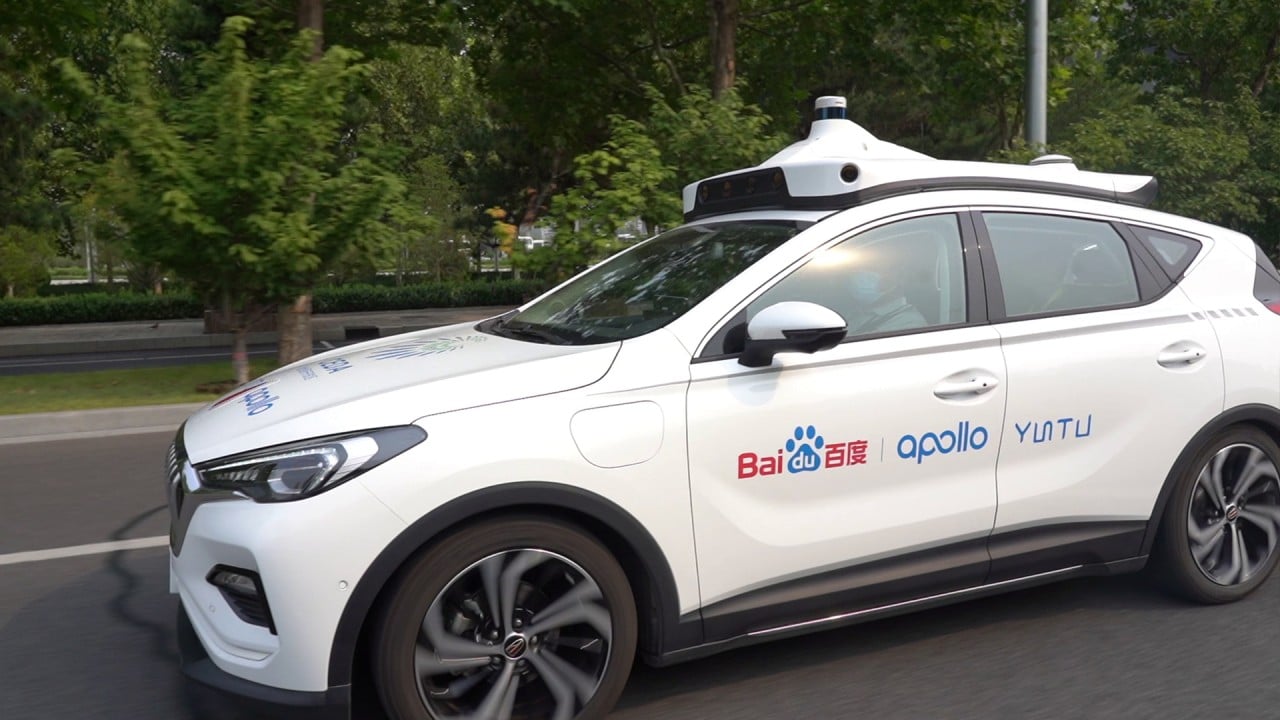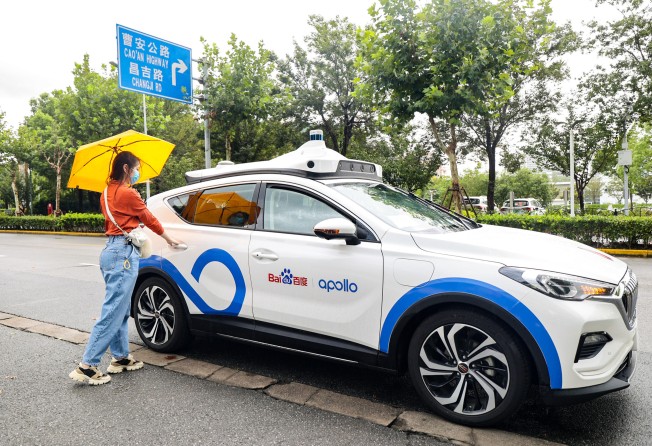
04:07
China’s automated driving technology speeds ahead with research by search engine giant Baidu

Two operators including Chinese internet search giant Baidu have been given the green light to start charging passengers to use their autonomous taxis in Beijing.
Baidu and Pony AI became the first companies to be granted licences by mainland Chinese authorities to launch their driverless cab services commercially following successful trial periods.
On Thursday, the Beijing High-level Automated Driving Demonstration Area gave permission for Baidu and Pony AI to charge fees for their so-called robotaxis in a designated area of the capital covering 60 square kilometres.
The plan, according to an announcement from Baidu, is to expand the service rapidly.
“With the successful trial operation of Baidu’s Apollo Go commercial service, both the number of autonomous cars and the area of operation are due to expand further to meet the needs of local commuters, setting a foundation for the wider and more rapid development of commercialised autonomous driving within China,” Baidu said in a statement.
Passengers who feel uneasy about the prospect of an algorithm getting them safely from A to B need fear not: the taxis will have a human “security officer” behind the wheel, ready to intervene if necessary.
Baidu started running its driverless cabs on a trial basis in September last year. It will operate a fleet of 67 autonomous vehicles zipping between more than 600 pickup and drop-off points within the Beijing Economic and Technological Development Zone, part of the permitted area. The service will be available from 7am to 10pm, and passengers can use the Apollo Go app to hail a ride.
The two companies have yet to unveil the fees they will charge passengers. Analysts predicted the rates would be similar to those of traditional taxis.
Pony AI is an autonomous driving technology company founded in late 2016 by James Peng and Lou Tiancheng, formerly two key developers and engineers at Baidu’s self-driving unit.
Pony started testing its robotaxis in Beijing in May this year.
“China is taking a step forward in exploring autonomous driving now that dozens of companies are engaging with development of key technologies to gain an ascendancy in the future of mobility,” said David Zhang, a researcher for the automotive industry at the North China University of Technology. “But the authorities will still take a cautious stance by expanding the pilot project step by step.”
In August 2016 NuTonomy in the US became the first company worldwide to make robotaxis available to the public, offering rides with a fleet of six modified Renault Zoes and Mitsubishi i-MiEVs in a limited area of Singapore.
A year later, Cruise Automation, a start-up acquired by General Motors, launched the beta version of a robotaxi service for its employees in San Francisco using a fleet of 46 Chevrolet Bolt electric vehicles (EVs).
In China, several carmakers including Tesla and smart EV start-up Xpeng Motors are offering customers driver-assistant systems, a preliminary technology to full self-driving.
Most of the technologies use “environment detection” sensors that can help a vehicle decide whether to pass a slow-moving car, but the process still requires human intervention.
They are classified as level 2 (L2) or L2+, according to a classification system published by the standardisation body SAE International.
Full automation, without the need for any human intervention, is L5.
Baidu launched Apollo, the world’s largest open-source autonomous driving platform four years ago, inviting dozens of carmakers, component suppliers and technology firms to develop next-generation vehicles.
Unlike other strong advocates for autonomous driving, Baidu pivots its approach from vehicle-only technologies to smart infrastructure.
The company has set itself a goal of expanding Apollo Go operations into 65 cities across China by 2025 and 100 cities by 2030.
Analysts said Shanghai would probably be the next mainland city to allow robotaxi service providers to tap passengers’ appetite for driverless cars.